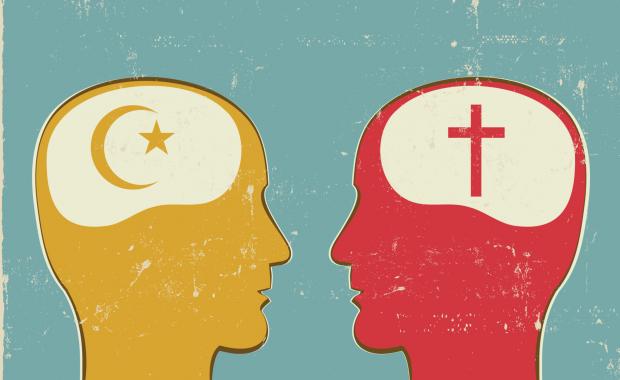A new cultural wind is blowing across the planet. Diverse faith communities, religious leaders and individuals have begun to commit themselves to mutual understanding and cooperation on issues of vital human concern.
The recent World Parliament of Religions in Salt Lake City (October 2015) drew over 10,000 participants from around the world who set aside theological differences to consider common actions on poverty, childhood hunger, disease, peace, justice and the environmental crisis. Recently, Pope Francis and the Patriarch Kirill of the Russian Orthodox Church met to focus on ending a rift that occurred in the 12th Century that had far more to do with the politics of the late Roman Empire than with everyday practice of Christians. The split has endured, however, and only now comes to be questioned as Christians in both the East and West find themselves facing issues of poverty, persecution and war.
This coming together of two important church leaders to discuss issues facing them both is in keeping with a growing interfaith dialogue that is occurring around the globe. Much of that dialogue is happening on the local and regional level, however, as people of faith often find themselves moving ahead of denominational and institutional leadership. Literally thousands of interfaith groups have formed in communities large and small. Interfaith organizations are beginning to replace the old ecumenical councils and organizations. Buddhists, Christians, Hindus, Jews, Muslims and others now sit down together to address their common concerns and visions.
However, they have to learn about each other in order to do that. Faith communities are moving beyond mere tolerance to deep listening, learning and appreciation of one another. These are exciting times to be living and working in religion.
There remain those who are frightened by this new dialogue, however. Despite Jesus’ repeated admonition that we are not to be afraid (John 14), the often hysterical fear of “the other” still dominates some religious thinking and practice. Such fear, I believe, is a sign of deep insecurity, weak religious identity and shaky faith. Such fear is a sign of commitment to an ideology rather than to the living presence of God.
I am still shocked when I discover that some people are not welcome at the table of fellowship to discuss common concerns. In my view, if anyone comes in peace with a willingness to listen, understand and work together, then they are welcome to the table. Attempts to convert one another have historically failed, and now the fate of the human race hangs on the possibility that we can evolve a way of being together that does not require of us to give up our individual identities but does require that we lay down our theological swords for a higher purpose.
As a Christian, I am always reminded that the Word of God became human to dwell among us (John 1) with his transforming love. The Word of God is alive in the human community and should never be reduced to a set of theological abstractions or to the slinging of doctrinal anathemas toward others. The Word of God welcomes children, the stranger, the broken, the imprisoned, the hungry, and those who need to be clothed with peace, security and love. (Matthew 25) In that spirit, interfaith relationships are the wave of the future, I believe, as God helps us to become more human and divine.
David C. Andersen, Ph.D, is pastor at Aldersgate United Methodist Church in Butte. Insights is written by members of the Butte Ministerial Association.


One Response
Halleluyah!!